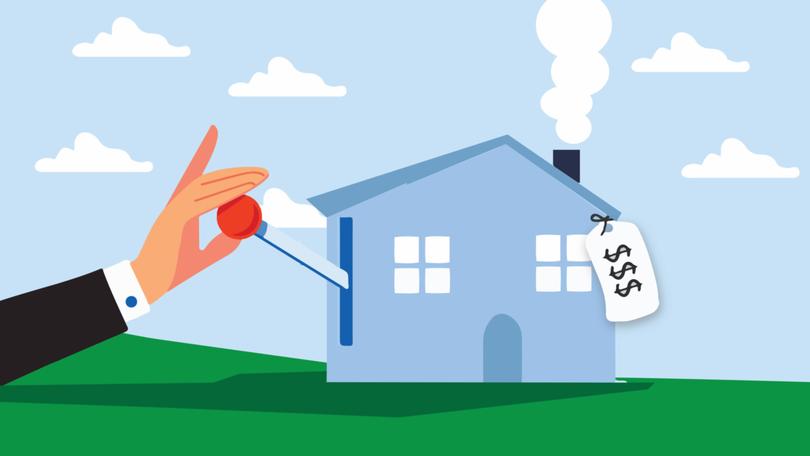Labor MPs won’t guarantee negative gearing will remain untouched
Multiple Labor MPs, who were not willing to comment publicly, said the Government had a full taxation agenda.

Labor MPs are not guaranteeing negative gearing will remain untouched but recognise they must win broad public support for any further changes in taxation.
Speculation about potential moves on measures beyond the revamp of the Stage 3 tax cuts ramped up this week after the Greens and crossbench senators Jacqui Lambie and David Pocock said they would support tightening negative gearing.
The government’s official line is this is not something it is considering or looking at.
Sign up to The Nightly's newsletters.
Get the first look at the digital newspaper, curated daily stories and breaking headlines delivered to your inbox.
By continuing you agree to our Terms and Privacy Policy.But Treasury boss Steven Kennedy said on Friday he had teams of people in his department “constantly working on all parts of the tax system” and he naturally spoke with Treasurer Jim Chalmers about that work.
The Greens are considering whether to demand limiting negative gearing to one property during their negotiations over the next part of the Government’s agenda in tacking housing affordability.

Labor MP Josh Burns said it was the wrong answer at the moment.
“Right now the biggest issue in the housing sector is supply and everything we do must be targeted towards increasing supply,” he told The West.
Multiple Labor MPs, who were not willing to comment publicly, said the Government had a full taxation agenda at the moment, with the stage 3 shake-up joining other measures also still before Parliament including on superannuation and the petroleum resources rent tax.
They agreed there was no serious discussion within caucus about returning to negative gearing changes — which were part of Labor’s platform under Bill Shorten in 2019 but dumped after the election loss.
One MP said it was too easy for any changes in the space to be misrepresented after the 2019 battle.
They were not sure it was defendable, contrasting it with the stage 3 changes which are being sold as necessary to deal with the sustained high cost of living.
But two others suggested negative gearing should be part of the conversation long term, while more colleagues said it would be politically possible provided it was properly explained to the community.
However, they cautioned any change must be put to voters.
One applauded the “mature” decision to duck the rule in-rule out game when quizzed by media and the Opposition on plans for various taxation measures.
Another noted that if the argument over why it was necessary to change tack on stage 3 despite having promised to leave the tax cuts untouched landed will with the public, that would give Labor the credibility in having a broader debate about the state of the budget and the need for revenue changes.
Dr Kennedy was grilled in a committee hearing on Friday over whether his department had been asked to look at changes to negative gearing or, conversely, explicitly told not to do so.
“I talk to the treasurer about every single part of the tax system,” he said.
“I have a whole revenue group that works on the tax system… They are constantly working on all parts of the tax system and I talk to the Treasurer about what that is showing.”
The Treasury secretary said he knew the Government’s policy but that he also had “a broader responsibility to work on everything that we’re responsible for and develop our advice”.
Finance Minister Katy Gallagher said she, Dr Chalmers and Prime Minister Anthony Albanese had been consistent on the question of negative gearing.
“It’s not something we’re looking at, it’s not something we’re working on. It’s not something before the parliament,” she told the committee.
She dismissed suggestions Dr Kennedy’s comments meant the Government was considering changes as “a load of absolute rubbish”.
The latest Treasury figures show almost half the 2.4 million people who claimed tax deductions for rental expenses were negatively geared.
In 2020-21 negative gearing was worth $2.7 billion, or almost 16 per cent of all rental-related tax deductions.
If the same proportion applies in 2023-24, it will cost the government about $4.3 billion for the year.

